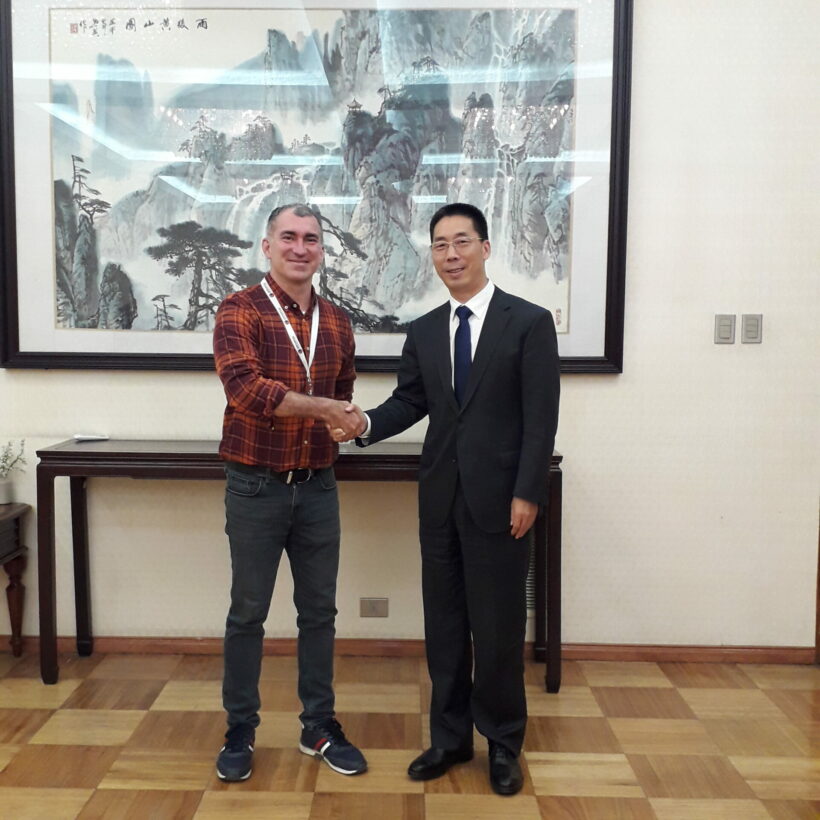Pressenza was one of the media invited to the press conference held by the Chinese Embassy in Chile this morning. Ambassador Niu Qingbao read Xi Yinping’s report to the 20th Congress of the Communist Party of China (CPC), held this month, whose delegates re-elected him as President of the People’s Republic of China.
Xi Yinping’s report highlights China’s achievements since the 19th CPC Congress in October 2017, mainly in the economic and global governance fields, and expresses the Chinese people’s willingness to work together to build a Community of Shared Future based on respect for the diversity of peoples.
“The main theme of this Congress is: under the great banner of socialism with Chinese characteristics, comprehensively implement the thinking on socialism with Chinese characteristics of the new era […] The CCP has already covered a hundred-year trajectory of struggle. Firmly resolved to carry forward the protracted great cause of the Chinese nation and dedicated to the noble cause of peace and development of mankind”.
It is worth noting that China is already Chile’s first trade partner, thanks to the Free Trade Agreement signed in 2005. Its investments are aimed at sustainable and environmentally friendly growth, and at adding value to raw material exports.
China has proposed four initiatives of global interest in international forums. The first is the joint construction of a global health community for all. A concrete example was the availability in the first half of 2021 of the Sinovac vaccine against COVID-19, thanks to which Chile became one of the countries in the world with one of the highest vaccination rates, thus allowing it an earlier reactivation of its economic activities.
The second is the Global Development Initiative. It was launched by President Xi Jinping at the United Nations General Assembly in September last year. This initiative calls on the international community to refocus on the problem of development and to pay attention to the special situation of developing countries. It proposes to deepen cooperation in eight key areas: poverty alleviation, food security, epidemic control and vaccines, financing for development, climate change and green development, industrialisation, the digital economy and interconnectivity in the digital age.
The third initiative is the Global Security Initiative, which aims at a common, comprehensive, cooperative and sustainable security and working together to defend global peace and security, with full respect for the sovereignty and territorial integrity of all countries. Not to intervene in the internal affairs of other countries and to respect the development path and social system independently chosen by the people of each country, and to abide by the purposes and principles of the UN Charter, abandoning the Cold War mentality, unilateralism and the policy of confrontation between blocs.
The fourth initiative is the proposal for cooperation on global food security. After the outbreak of the Ukraine crisis, European countries impose sanctions on Russia as never before, which has severely damaged the security of global industrial and supply chains. Food shortages and rising food prices are observed, and developing countries, especially the least developed, are the hardest hit.
In the face of this global food crisis, in July this year, State Councillor and Foreign Minister Wang Yi, at the G20 Foreign Ministers’ meeting, formulated the global food security cooperation initiative which includes eight points, including supporting the United Nations and its related agencies to play a key role in coordination, and unlocking the export potential of major food-producing countries, reducing trade and technical barriers, controlling the use of food-generated energy, in order to alleviate food shortages in the market.






